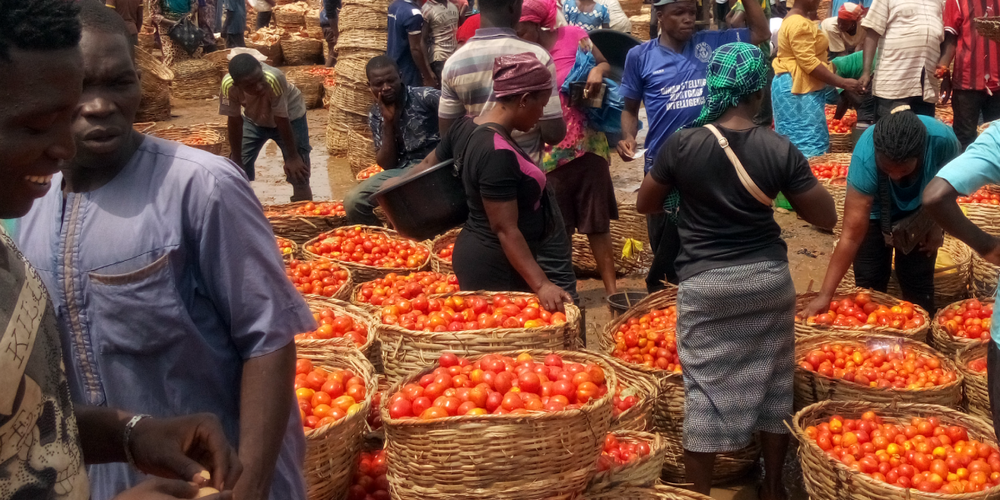COVID-19, others push Nigeria inflation to two-year high

In view of the border closure and increased demand for food on the back of COVID-19 lockdowns, Nigeria’s inflation rose in April to its highest in two years, latest data released by the National Bureau of Statistics on Thursday has revealed.
The Consumer Price Index (CPI) which is used in measuring inflation rose to 12.34 per cent in April, when compared with April 2019, and up from 0.08 per cent in March 2020.
The closure of land borders in the country in August 2019 was a major driving force for the upward trend of the inflation rate of the country since September 2019.
The closure affected the availability of rice, vegetable oil, frozen food and other staples, causing prices of the commodities to be on the increase.
The NBS said the composite food index rose by 15.03 per cent in April 2020 compared to 14.98 per cent in March 2020.
This rise in the food index was caused by increases in prices of potatoes, yam and other tubers, bread and cereals, fish, oils and fats, meat, fruits and vegetables.

Commenting on this development, Professor of Capital Market at the Nasarawa State University Keffi and former Commissioner for Finance, Imo State, Prof. Uche Uwaleke said, “inflation figure for April by the NBS, it is of interest that while core inflation, that is, all items less volatile farm products, is relatively under control at below 10 per cent, the pressure is still coming from the food component which rose by over 15 per cent.
According to him, the rate of increase in food inflation could have been higher if the federal government had not released grains from the country’s strategic reserves.
“The way to cage it is to ensure that the stimulus packages get to farmers so that more food can be produced locally in the coming months considering that the borders may not be opened anytime soon due to COVID’19.”

He, however, noted that the rising inflation rate poses a challenge to monetary policy especially in the face of the need to stimulate economic activities through a lower interest rate environment and rescue the economy from recession.
It is worthy of note that Nigerian states, including Abuja and commercial centre Lagos, have been on lockdown for close to two months now.
In April 2020, all-item inflation on a year-on-year basis was highest in Bauchi, Sokoto, and Plateau while Edo, Abuja, and Kwara recorded the slowest rise.
For food inflation, Sokoto, Akwa Ibom and Abuja recorded the highest while Ebonyi, Edo, and Enugu recorded the slowest rise.
“On month on month basis, however, April 2020 food inflation was highest in Akwa Ibom, Lagos and Oyo, while Bayelsa, Ebonyi and Enugu recorded price deflation or negative inflation (general decrease in the general price level of food or a negative food inflation rate),” the NBS said.






